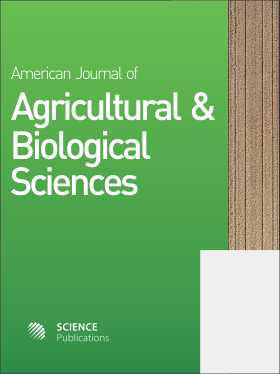TRANSPIRATION INFLUENCES CADMIUM UPTAKE BY BABY LEAF SPINACH (SPINACIA OLERACEA L.)
- 1 Hawkesbury Institute for the Environment, University of Western Sydney, LB 1797, Penrith, NSW 2751, Australia
- 2 School of Science and Health, University of Western Sydney, LB 1797, Penrith, NSW 2751, Australia
- 3 Department of Primary Industries, Elizabeth Macarthur Agricultural Institute, PB 8, Camden, NSW 2570, Australia
Abstract
Cadmium (Cd) is a toxic heavy metal whose concentration in soils is rising. This study investigated the effect of transpiration on Cd uptake by plants using soil conditions akin to those experienced by field crops. Two experiments were performed using baby leaf spinach (Spinacia oleracea L.) grown in soil containing Chloride (Cl) at a typical concentration of 70 mg kg-1. Experiment 1 explored plant response to Cd over the range ∼0.04 to 10 mg kg-1 so that a non-toxic concentration could be selected for Experiment 2. Experiment 2 tested the hypothesis that transpiration and Cd uptake were related using soil amended to 70 mg Cl kg-1 and 0.24 mg Cd kg-1. Differences in transpiration were achieved by manipulating atmospheric CO2 (∼400 and ∼640 µL CO2 L-1) and air temperature (22/14, 26/18 and 30/22°C day/night). In Experiment 1, Cd in the foliage variedfrom ∼2 to ∼100 mg kg-1 DW, yet there was no evidence of Cd toxicity. In Experiment 2, temperature and [CO2] caused large differences in plant growth. [Cd] was lower in chambers with increased temperature and higher in those with elevated CO2. Despite differences in growth, transpiration and foliar Cd uptake were positively and strongly correlated, even when both parameters were expressed on a DW basis. The data are consistent with Cd transport by mass flow towards the roots being a substantial contributor to Cd uptake. Higher [Cd] at elevated CO2 raises concerns about future chronic dietary exposure to Cd. The findings challenge the interpretation of earlier studies on the effects of CO2 and temperature on Cd uptake and may partly explain the inter-seasonal variation in Cd uptake by field crops.
DOI: https://doi.org/10.3844/ajabssp.2014.523.533

- 6,368 Views
- 4,839 Downloads
- 0 Citations
Download
Keywords
- Transpiration
- Chloride
- Elevated CO2
- Temperature
- Canopy Area
